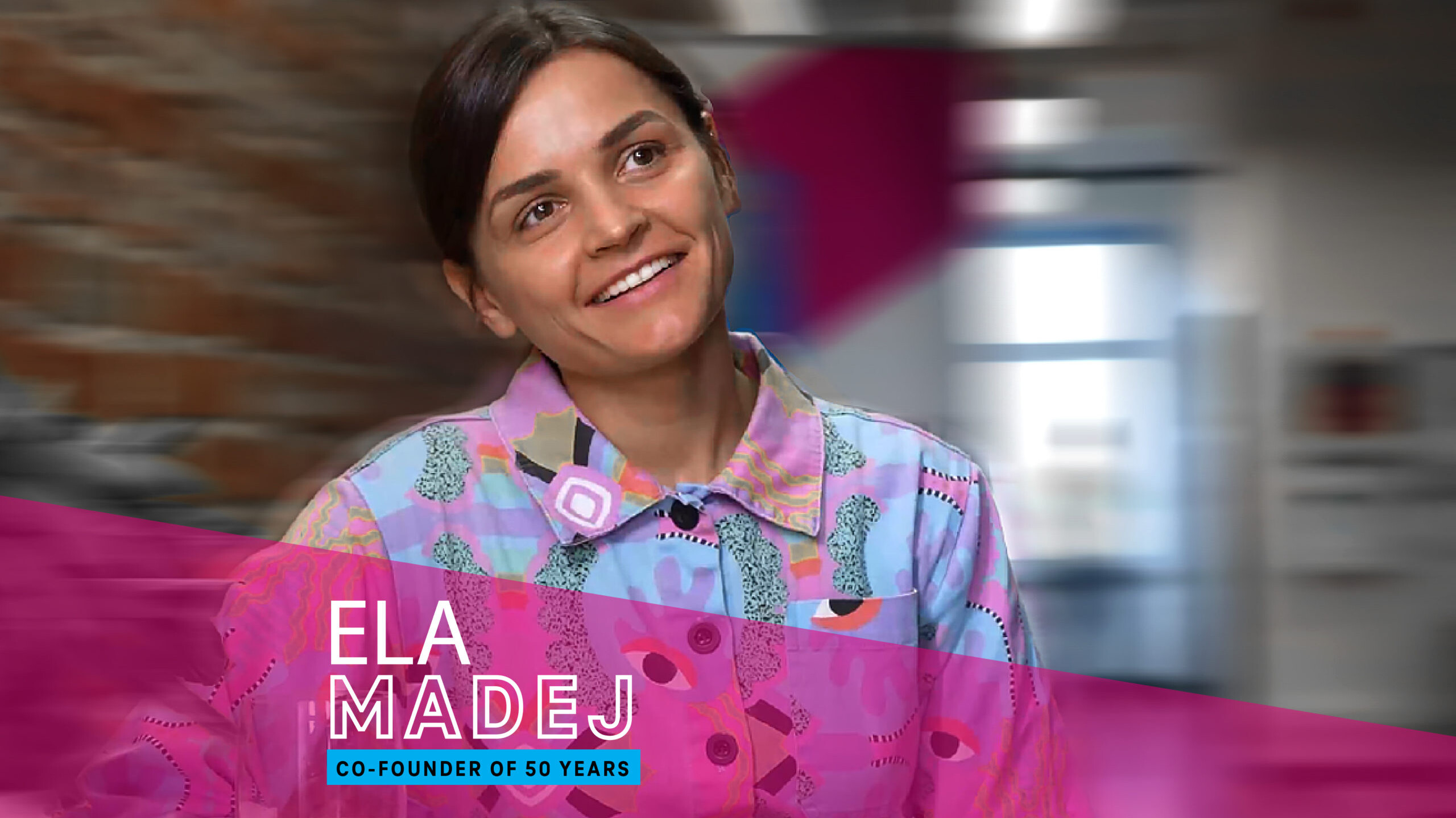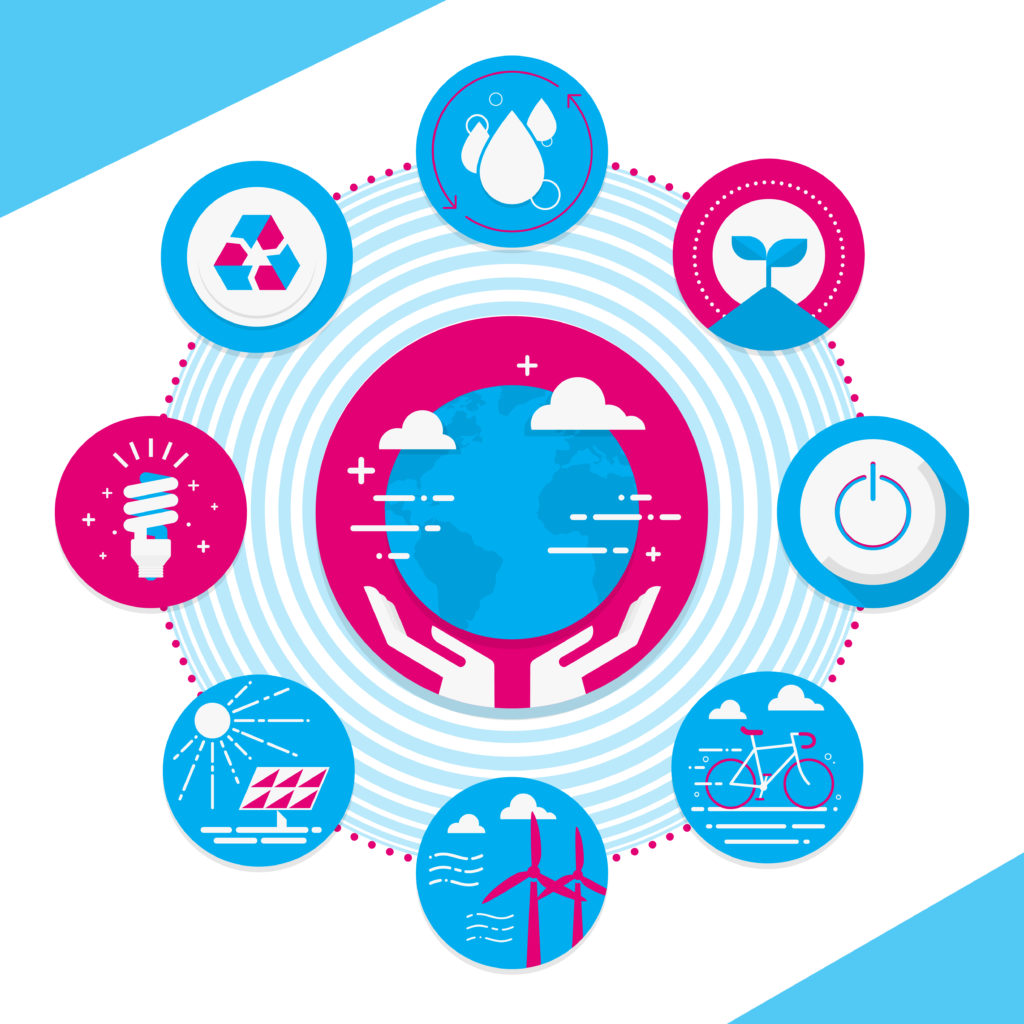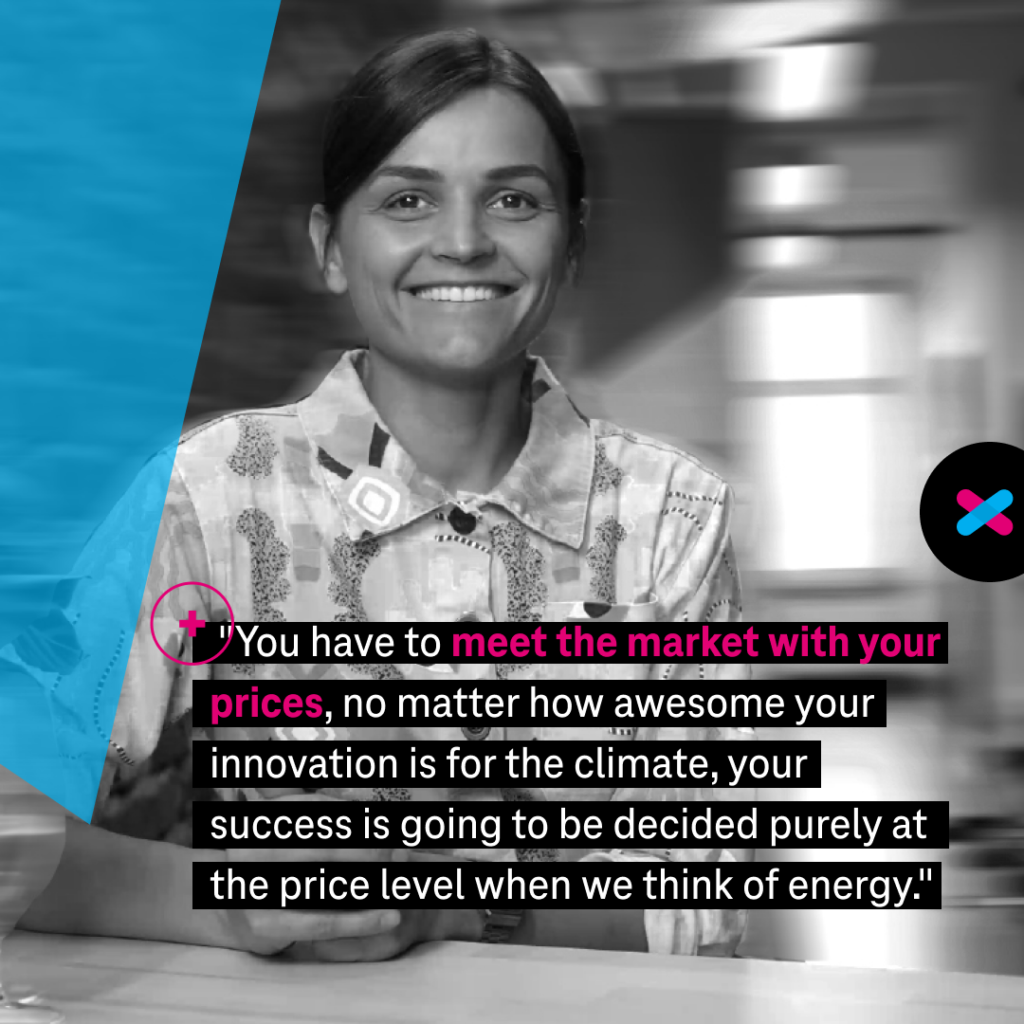
2700 visitors and a hat to help the blind see: hubraum visits MWC 2024
After a whirlwind trip to the 2024 Mobile World Congress in Barcelona, we’re ready to celebrate our wins.

Ela Madej is a serial tech entrepreneur and a Y combinator alum. She started her first company, Applicake, at the age of 21 in 2006 and, equally impressively, she’s appeared on the cover of Forbes Poland. In 2015, together with a fellow YC alum, Seth, she co-founded 50Y, a venture capital firm that funds tech companies aiming to solve big problems in the world (think climate change, animal agriculture and more). Besides all of this, Ela started at — and continues to visit! — hubraum Krakow, where she used our coworking facilities and acted as one of our mentors. We sat down with Ela to ask her about how startups are supporting sustainability; the joy of the Krakow ecosystem and 50Y’s infamous Mr Burns test.
I’m originally from Krakow, but when Seth and I co-founded 50Y, we were spending a lot of time in San Francisco. This is where the office is based and where the whole team is based, but we have a whole team based here in Krakow as well. We started looking for a place to anchor ourselves and hubraum Krakow was that space. I arrived here six or seven years ago and now whenever we’re in Krakow, we spend time here, cowork here, run some events here — like one of the rails conferences I co-organised was run here in 2014 as well as two clean air hackathons that hubraum helped produce.
I’m always eager to come back here. There’s so much potential in the local entrepreneurial scene in Krakow because there’s a lot of humility. I don’t think people here always fully appreciate how much they have and how technically strong they are. I think when you’re based in Silicon Valley and you’re used to a very American sales pitches and a very different way of presenting yourself, it becomes clear that there are a lot of easy fixes that entrepreneurs from this region could implement in terms of pitching their ideas and storytelling for their companies. Fundamentally a lot of those entrepreneurs and companies are really, really solid — often their only weakness is about communication, which is an easy thing to fix.
50Y is an early-stage venture firm. We’re based in San Francisco, we back pre-seed and seed companies using tech to solve the world’s biggest problems. Because of the nature of the world’s biggest problems, they’re not easy to solve, so a lot of the companies we back are deep seed companies. They’re building hardware or they’re using biology to come up with novel therapeutics or platforms to develop therapeutics.
We back a lot of companies in the sustainability and climate tech space, that can help with animal agriculture, which is just one area we’re passionate about. We back companies working in space tech, as well as companies that can dramatically lower the access to and cost of healthcare. We’ve backed over 100 companies to date.
In terms of geography, I would say our focus up until very recently has mostly been on North America based companies with an occasional exception based in Europe, but recently we’ve been backing a few more startups in Europe and we’re seeing if we can be as helpful to them as we are to companies in Silicon Valley which means if there are firms or startups in Poland or Europe working on solving big problems with technology, they should talk to us.
We were just saying a second ago that two of the firms we back are based in Berlin, there are two companies in London as well and I think in the future we’ll be even more active in those ecosystems, since those deep-tech ecosystems in Europe are maturing.
One big problem is the climate crisis, which is being impacted by climate tech — when you look at the current environmental situation we’re in, it’s a pretty dire situation. So there’s a level of realism, because no single company is going to affect this issue to the degree corresponding to the scale of the problem. However, I believe that if we back a whole spectrum of solutions across energy storage, across new energy sources, across electrification of transportation, across the current organisation of the chemical industry and carbon capture, if we back companies across all those areas, some of them will grow and become massive trillion-dollar companies.
It’s not about the monetary value but the fact that this figure will reflect how much they were able to contribute to reducing the emissions in the transportation industry, in the physical build industry, in animal agriculture which is responsible for approximately 40% of global emissions. That’s an area that’s very timely — we’re optimistic because we do what we do because we think change is possible.
This said, some of those problems are massive so we’d love to be able to do even more and we’re very happy when people copy what 50Y is doing and are funding very similar things because we need all the money we can get into those areas. I’m also very happy about animal agriculture and all the plant-based and cellular-based interventions into how we can recreate global food chains so we don’t have to use sentient beings there.
When you think of energy, it comes down to a very boring math of can you meet utility prices? People don’t overpay for energy because it’s greener. You have to meet commodity market prices. I think a lot of people misunderstand that just by having climate tech label, you’re going to beat the fundamentals of the market. There’s a price the market wants to pay and they’re not getting into the other nuances, for better or for worse.

Startups sometimes think you can raise your seed, your pre-seed, your series A, maybe even get people to pre-pay for whatever product you have, but these are small niches of customers. You have to meet the market with your prices, no matter how awesome your innovation is for the climate, your success is going to be decided purely at the price level when we think of energy. Maybe 0.1% of the market will buy it because of your packaging or because they like your company or because you have good Instagram ads, but at the end of the day, the products have to be defensible. It goes back to what we call the Mr Burns test: is it actually better?
Everyone knows The Simpsons, and one of their characters is Mr Burns — he’s a prototypical capitalist. He essentially only does things in his self-interest and never does anything altruistically. Obviously there are problems in the world and there’s a bunch of interventions which you can use to fix them: philanthropy, quasi philanthropic funding, venture funding, which is what we do. And we’re saying that, cynically speaking, just from understanding the mechanisms of capitalism in scaling products and services, for a lot of the problems we’re talking about, you have to design a solution which would pass the Mr Burns test.
The test is, would I — as a prototypical capitalist who is only thinking about what’s in it for me — would I use this product and service over anything else? Is it more convenient, cheaper, better than the competition? We believe that even with the best intentions, if you don’t design your product and service which passes the Mr Burns test, it’s very hard to have massive global impact because you’re just not going to scale.
The investment industry is still quite male dominated, that’s true. The beauty of early-stage startup backing is that it IS VC funding, so you might think of it as the financial industry, but it’s very far away from the reality of that sector in terms of the day to day. It’s a lot about being good at reading people: we meet people with an idea and have to predict what sort of impact we believe they’ll have over the next 10 years. You have to look at what these people have done before, how they respond to questions, how they approach criticism. As such, there are a lot of soft skills that I think, stereotypically, women are really good at. I think women can be excellent in this role because that level of intuition is super helpful when you’re an angel investor in early stage startups.
Raising a small fund is usually an exercise in working with high network individuals, there’s not that much institutional investing, and I feel the institutional level funds can be a bit like “old white men” clubs which we don’t interact with too much. However, when I do, I don’t think: do I impress them, do they think about me in the way I want to be thought of professionally? The key question is in the reverse: do I like working with those people? Do I want to interact with those people for the next ten years?

Firstly, talk to as many people about your idea as possible: identify the smartest people you know, tell them about your idea, ask them what’s missing, ask them how you can communicate about your idea better and get help not just with the idea but also with telling the story of that idea. Secondly, make sure your cofounders and the early team is composed of the smartest people you can imagine. Because the people you have will set the intellectual level and the level of productivity in your company.
The early make-up of the team is crucial for creating one of those organisations that become a magnet for talent. The moment you pass the early funding, the early hires, if you’re successful enough and lucky enough to get there, you’re going to realise, I need to hire so many more people to scale and if you hurt the organisation with the early hires, it’s extremely difficult to correct. And a third tip — make sure you pass the Mr Burns test.
I really hope that together with hubraum, we can celebrate 50Y in forty years’ time! Jokes aside, I really hope that incredible startups continue to get incubated here and call it their early home, that’s such a clear reinforcement loop for any organisation like you.
The community here is truly amazing and every time we come back here, we’re happy. Not just because the space is amazing and the view is amazing and the location is amazing, but because we see so many friendly faces and so many of my old friends. I just ran into friends from high school and my first company days who are now working for hubraum, which I didn’t even know! So it already has this crazy community positive feedback loop and I hope this continues.